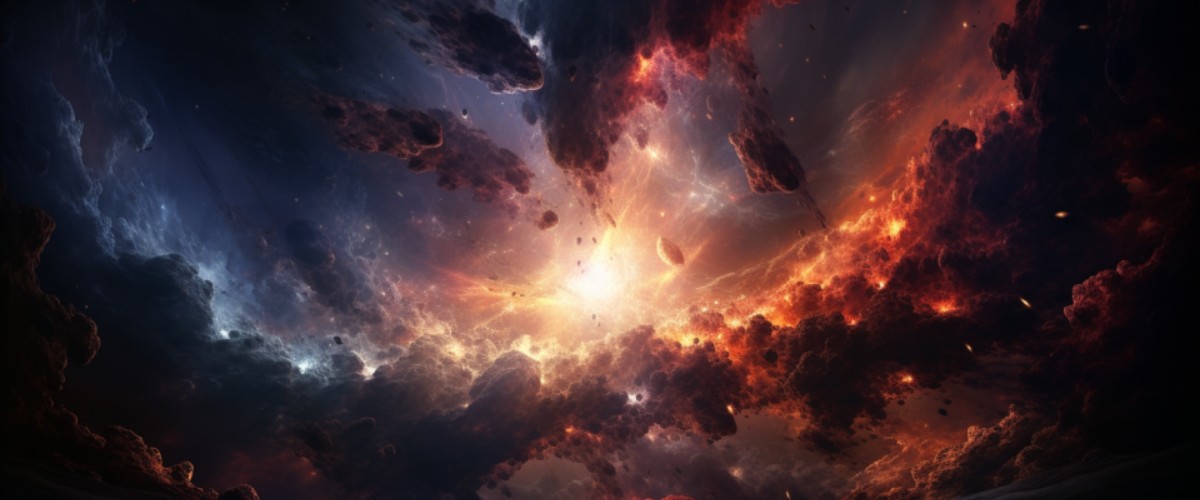The Big Bang stands as the event marking the beginning of our universe, occurring approximately 13.8 billion years ago. The significance of this incomparable event reverberates through all aspects of existence, providing the substrate for galaxies, stars, planets, and ultimately, life as we know it.
Background
Cosmological Pretext:
- Pre-Big Bang Theories: Prior to the widely accepted Big Bang theory, static and infinite universe concepts prevailed.
- Scientific Consensus: The scientific community, through observational and theoretical physics, coalesced around the Big Bang theory as the most probable explanation of the universe’s inception.
Key Figures:
- Georges Lemaître: Conceived the idea of an expanding universe, which later pivoted towards the Big Bang theory.
- Edwin Hubble: Provided empirical evidence of an expanding universe, vital for the Big Bang theory’s establishment.
- Stephen Hawking: Contributed theories concerning the early universe and singularities, refining our understanding of the Big Bang’s mechanisms.
Major Happenings
Crucial Milestones:
- Singularity: An infinitely small, hot, and dense point from which the universe burgeoned.
- Rapid Expansion: A swift, exponential expansion of the universe from the singularity, often referred to as “inflation.”
- Formation of Basic Elements: During the initial minutes, protons and neutrons formed and subsequently created helium and hydrogen through nucleosynthesis.
- Cosmic Microwave Background Radiation (CMB): Roughly 380,000 years post-Big Bang, electrons and protons united to form neutral atoms, resulting in the CMB.
- Structure Formation: Over millions of years, cosmic structures such as stars, galaxies, and clusters took shape.
Immediate Outcomes
Cosmological Consequences:
- Expanding Universe: Continual stretching of the cosmic fabric, evidenced by galaxies drifting apart.
- Elemental Abundance: The emergence of hydrogen and helium as primary elements, foundational to star formation.
- Cosmic Radiation: The permeation of CMB, serving as a tangible remnant and critical evidence of the Big Bang.
Long-term Impact
Universal Evolution:
- Star and Galaxy Formation: Elemental particles coalesced to form stars and galaxies, crafting the universe’s architecture.
- Life Emergence: In specific cosmological settings, conditions permitted the evolution of life, epitomised by Earth’s biosphere.
- Cosmic Dark Age: An epoch characterised by the absence of illuminating astronomical objects, ensuing a pervasive darkness.
- Cosmic Acceleration: An ongoing phenomenon, wherein the universe’s expansion is inexplicably hastening.
Influences on Scientific Thought:
- Astronomy: Guided contemporary understanding and exploration of the cosmos.
- Physics: Shaped numerous theories, particularly in quantum mechanics and relativity.
- Philosophy: Provoked existential and metaphysical contemplation concerning existence and the universe’s nature.
Conclusion
The Big Bang, notwithstanding its cryptic inception, persists as a pivotal occurrence that forged the universe and facilitated the existence of myriad cosmic phenomena, inclusive of our own sentient being. This event has not merely shaped our cosmological comprehension but has incessantly impacted philosophical thought, theological discourse, and scientific exploration.
As we persist in our endeavour to decipher the universe’s enigmas, the Big Bang will indubitably remain a central focal point, perpetually influencing our quest for understanding amidst the cosmic expanse. Furthermore, as technological and theoretical advances ensue, it’s anticipated that our comprehension of the Big Bang and subsequent cosmological events will progressively refine, perpetuating its paramount significance in our quest to fathom the infinite.








